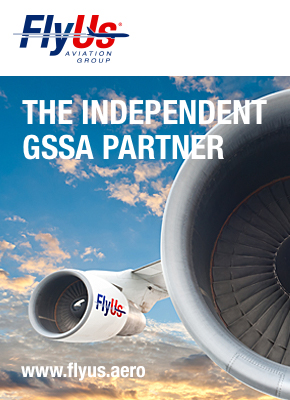
The new leadership at TIACA is “convinced” it is taking the organisation the right way, and says it is the right vehicle to confront urgent challenges in the air cargo industry.
“TIACA is shouldering an important responsibility,” said Oliver Evans, chairman (pictured). “There is a structural change going on in the industry, and the urgency of progress has never been higher. I’m convinced that TIACA is responding to the needs of its members.”
It has been a tumultuous few months for the industry association, which saw long-serving secretary general Daniel Fernandez edged out to be replaced by former forwarder and TSA stalwart Doug Brittin.
This was followed by the resignation of Issa Baluch from the board, who claimed that the leadership over the past three years (Uli Ogiermann, Michael Steen and now Mr Evans) had trodden on TIACA’s traditions and appointed like-minded people into leadership roles, rather than board members. Claiming that big business had taken over, he told media: “The assets of the many, earned over many years, are now appropriated to fund the agenda of the few.”
However, with fees of some $10,000 required to become a trustee, from which board members are chosen, the traditional structure under TIACA rules already appears to promote leadership from big business. While fees were raised last year, Mr Evans said that tariffs for SMEs were under review.
“We have started to look at the fee structure. Our members already come from a wide range of businesses, which include smaller forwarders. The diversity is increasing, but we recognise that the current fee structure represents a barrier and it is under review.
“TIACA has a more diverse membership base than ever before, with both increased geographic and stakeholder diversity. We are also enlarging the board. We have had a realisation that we need to rethink things. We also want to see more different businesses – IT, forwarders, airports – as we need to encourage them to lend their weight to the industry. It could be that we encourage forwarder associations to join, so they can lend their voice to the debate. “
The TIACA of the past few years, notably under the leadership of Mr Steen, attempted to create a single voice for the industry in the face of new – and sometimes impossible to enforce – regulations from the US and EU. It has tried to pull together a complex and diversified industry in a bid to increase efficiencies and gain a voice at the table of organisations such as ICAO – and has had some success in doing so.
“Industry change – for example, e-freight – has come too slowly,” said Mr Evans. “But pressure is coming and that is good. Pain is coming. In the passenger world the airlines are expanding and that will mean huge pain for freighter operators. There is a structural change going on. We need to use our voice and respect to convince others of a common purpose. ”
Both TIACA and IATA have also been reviewing the need for the Global Air Cargo Advisory Group (GACAG), which in part overlaps TIACA’s goals. But, said Mr Evans, a meeting this week concluded that there was a need for both organisations.
“Each has a role to play. TIACA has a unique proposition and clear role in the industry. GACAG is a steering committee to define areas of priority and common statements. Can we streamline them? No.”
He did note, however, that Cargo 2000 was undergoing change. “The original idea of C2K was to bring in a broader spectrum, but the membership has plateaued. Now there is a working paper looking at the value proposition for shippers and finding a common vision for where we are heading. Different groups have been looking at it differently – there is a huge value in mapping those activities and eliminating overlaps. It will have tremendous potential. It takes a long time to do but we are making progress, which will add value to us as an industry. Shippers will notice and be able to choose on the basis of quality.”
While several board members are said to be unhappy at the previous leadership’s choice of non-board vice-chairmen, Schiphol’s Enno Osinga, the new vice-chairman, was selected from the board – although there was said to be a split in support.
The appointment of the new secretary general is thought to have been less controversial, and Mr Evans dismissed speculation that Mr Fernandez was considering legal action against TIACA. One source close to the organisation said: “Having both a chairman and a vice-chairman with little experience of what TIACA was about gave Daniel [Fernandez] the opportunity to have more power than was good for him or TIACA.”
Some observers have questioned the need for both Mr Brittin, a former US regulator, and Sue Presti, the senior director government affairs. Mr Evans said they had different roles to play, but added that the association did need a stronger voice in the EU, where it was represented by the lobbying organisation Hill & Knowlton.
And he hit back at suggestions that TIACA was working on behalf of the few.
“I believe we are addressing the collective needs of the members,” he said. “It is democratic – we follow a strict set of rules ordained by TIACA. We won’t satisfy everyone 100%, but I am convinced that we are addressing the needs of our membership. We are focused on the collective power of the association.”
He added that TIACA had much work to do. “We need to raise awareness, simplify complexity, engage with regulators and listen to our partners. We have many important things to do and we’ll do them in a responsible way.”



